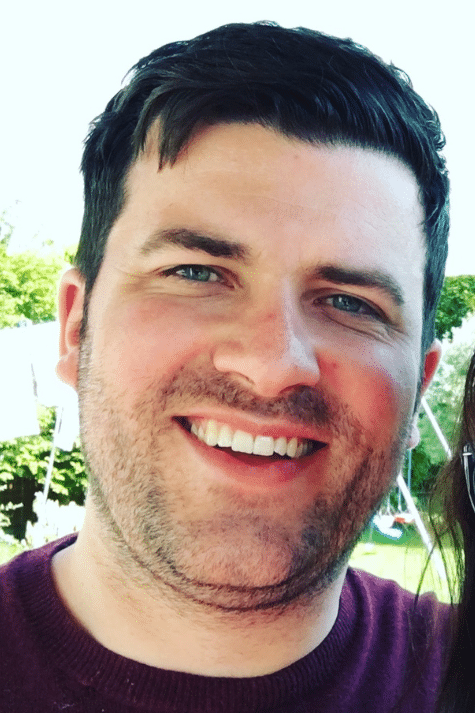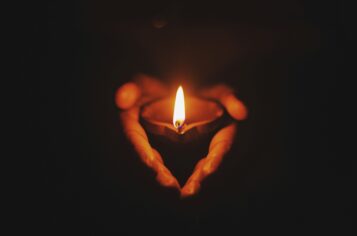
Steve Elton, lead Pastor at Hope Springs Church and Chief Operations Officer for HOPE Coventry, discusses reconciliation, how it brings hope, and its importance in connecting people with differences to transform cities and communities.
Reconciliation in life is essential. The gospel that Jesus shared is a gospel of peace and reconciliation. Jesus came to reconcile the world to God – He came to be with us and, by doing so, helped us see God for who He really was. The work I do, whether it’s leading our church or the HOPE Coventry charity, requires working with people from different contexts, backgrounds, and viewpoints. All of this requires the art and skill of reconciliation.
There’s a broad spectrum of views in the church but, in the Bible, the church is also described as one ‘body’. We have to find a way for each of us to be who we are called to be, while ensuring the body remains connected – with every part doing its work. Because of this, I’m passionate about trying to help people find that point of connection, despite their differences of opinion. Without this, I think we become disconnected and do not see the transformation in the cities and towns and people’s lives that we hope to see.
The ‘splinter in my brain’ moment
I remember vividly one evening I was feeling frustrated with the tension, conflict, and disconnection I was encountering with people around me, on social media, and in world news. I decided to explore further online to try and find a solution. This made me even more frustrated because I couldn’t find anything to address the ‘splinter in my brain’. Eventually, I stumbled across Journey of Hope, a programme that trains faith leaders to be skilled peacemakers in their communities and includes a module on Difference.
Before finding Difference, I knew something was not right, but I hadn’t got the vocabulary to express it or any effective way to address it. The language of Difference is simple and embedded in my mind. I use words like ‘reimagining’ in my conversations with people, and the idea of ‘being present’ – encountering others with authenticity – is massive.
People are made in the image of God
Difference is an antidote to the disease of polarisation, not difference. I think polarisation wants everything to be the same. The course addresses the issue of people hiding away in silos and helps people find a way to connect without agreeing. I know a lot of people still find it hard to be near someone who holds a different view on something that matters to them, let alone connect with them in a friendship
Sometimes there are justifiable reasons for that, but I think underneath it all is the truth that people are made in the image of God. We should try to reconcile based on that truth, and then work on the topics that differentiate us. But I understand this can be hard and messy.
Recently, I had conversations with church leaders on different ends of the theological spectrum on a certain topic. They clearly differed on that subject, but in many other areas, they were very similar. The challenge was they were anxious about connecting with those who viewed things differently from them. I do get this, it’s hard. But I couldn’t help thinking that, if we could get them into the same room together, they might be able to connect, seeing each other as the gift they are to one another and moving forward in some positive way that sees the church strengthened and ultimately the city transformed.
Lived experiences brought to life
I’ve run Difference twice. The second time I had people from five diverse churches, denominations, and ethnic backgrounds, with varied perspectives. Running the course in the context of difference was amazing. This made the course feel like a lived reality.
A lady from a White-majority church said it was life-changing to hear accounts of refugees and asylum seekers from a church in Coventry. Some of them shared deeply personal experiences. They had been persecuted in their countries and had fled and left behind their families. A gentleman from Iran said, “Jesus says we should love our enemies – that means my enemy becomes my friend.” When that’s spoken by someone who has very tangible enemies, it does something to any of us who may have ‘digital’ or ‘abstract’ enemies! It’s the provocation of Jesus, through one of His followers!
Helping people to ‘reimagine’
When we talk about the Difference course, ‘reimagine’ is the word that resonates with me. I want to help people reimagine a future that doesn’t look polarised, disconnected, or entrenched in silos, but a place where people can be in a relationship with each other as they follow and serve Jesus. How can people imagine and reimagine that possibility? Often, we can’t see that, but Difference helps to paint that picture, and participating in the course helps you to see that.

Steve Elton leads Hope Springs Church, a local church that supports and empowers people and churches forward on their Christian journey. He’s also Chief Operations Officer at Hope Coventry, a Christian charity that partners with churches, charities and other organisations to speak out against injustice and bring hope in Coventry.



